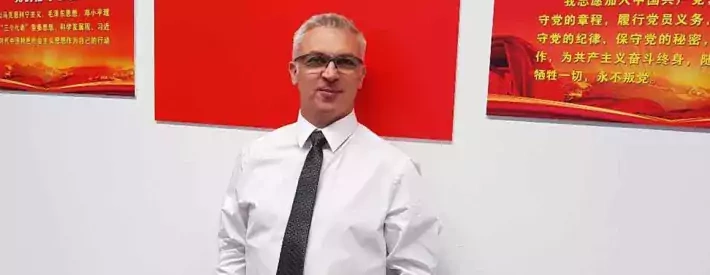Knowledge transfer: Applying RAF skills to the motor industry

In this article: The IMI’s very own Tony Lawson, Head of Assessment Services, talks to MotorPro about his move from established career in the RAF to climbing the career ladder in the motor industry
What drew you to a career in the military?
I joined the Royal Air Force in 1986 straight from sixth form. I grew up in mid-Wales, and at that time, local job opportunities were very limited, so I started looking wider afield.
I was always interested in mechanical repairs and maintaining motorcycles. From the age of 11 to 18, I participated in junior & senior motocross. With the support from my dad, we completed all our own mechanical maintenance, which was my initial interest into engineering.
When I joined the RAF, my aim was to work within aeronautical engineering, but I missed the entry requirements as I had reached my 19th birthday during the interview processes and, at the time, you had to be under 19 to progress on to the RAF young apprenticeship scheme, so I then opted for the ground engineering option.
What kind of equipment were you working on as part of the ground engineering team?
I joined the RAF as a mechanical transport technician. This basically meant if something had an engine within it, or propelled itself, then I worked on it. The equipment ranged from Land Rovers to helicopter refuelling systems, surface to air missile systems, tankers, cranes, generator sets, anything related to mechanical engineering really.
There was a lot of consolidation within the military in the early 90s, as a result I worked with the Army on 16 Air Assault, 8th Armoured Division and Rapier missile squadrons when the tri-service agreements started coming into play. This also resulted in several tours of the Middle East and the conflicts in that region, I also completed numerous other postings around Europe and the USA.
You had a 22-year career, what made you decide to leave the forces?
I achieved the rank of senior non-commissioned officer (SNCO) and had the option to accept further promotion and continue my military service or to look for alternative employment and progression routes outside of the military. After 22 years’ service and a lot of traveling, I made the decision to leave the RAF and pursue new challenges!
I wanted to use the skills and the knowledge that I had gained in the RAF. As I was completing resettlement training, I had a contact who worked for the Volkswagen Audi Group who was ex-military, so gained insight to adult technical training. When I left, I went to work for Audi Technical and Apprenticeship Training and this was my entry into the civilian automotive industry.
How difficult was the transition from RAF to civilian life?
I did find the transition from military employment to the automotive industry a big learning curve, although I had 22 years’ experience as a technician and senior manager, I'd never touched or worked on a single Audi product. The initial 6 to 12 months was a challenge and I spent a lot of time at the Volkswagen Audi Group training facility in Milton Keynes getting up to speed with the brand, products and repair techniques.
How did your career develop from there?
I started as an automotive Technical Trainer and Apprenticeship Training Tutor. I was in that role for nearly 3 years before I was asked if I would start managing and quality assuring those processes. That fitted perfectly as a lot of my background in the military when I became a SNCO included training, development and quality assurance functions.
I then moved to Bosch Automotive Service Solutions who were delivering multiple manufacturing training courses and apprenticeship programmes for different manufacturers, my role included management of the delivery, training and quality assurance for these areas.
And you’re now Head of Assessment Services at the IMI, what brought you to the institute?
Working at Bosch and Volkswagen Audi Group, I had a lot of involvement with the IMI which gave me the ambition to work for them, as it is seen to be the pinnacle within the automotive industry; training and members, professional register. An opportunity for an External Quality Assurer role was advertised in 2012 and in January 2013 I started in that role!
I started in 2013, then in 2014 I changed roles to External Quality Manager, managing a team of external quality assurers. When the new apprenticeship standards started being rolled out in 2017, a new position of End Point Assessments Manager became available, I thought this would be another great opportunity and challenge. I put myself forward for interview and was successful in gaining this position.
As the IMI End Point Assessment team has grown along with the volume of apprentices, the opportunity for further development and progression within the IMI to the position of End Point Assessment Operations Manager became available, this role I accepted as I believed this was another great opportunity for my own personal development.
My most recent change of role took place in July 2023, becoming the Head of Assessment Services at the IMI, another fantastic occasion to continue developing as an individual and positively contribute to the IMI’s purpose.
What advice would you give to someone transferring from military to civilian life and a job in the motor industry?
Whilst in the military, always fully utilise the vast amount of training and qualification opportunities available. Utilise your resettlement training well and gain as much knowledge as you can around the route of employment you wish to pursue, whether that's technical or non-technical. During the transition to working within the automotive industry, never underestimate the many transferrable skills you have acquired and developed during your military career, those skills are widely acknowledged and sought after by employers within the automotive industry.




